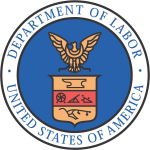Final DOL Fiduciary Rule Published
ERISA and the Code prohibit fiduciary advisers from receiving compensation based on their investment advice unless an exemption applies. In the absence of an exemption, the arrangement would result in a prohibited transaction.
The DOL has clarified the standards for whether or not investment recommendations/advice is being given and provide several exemptions that will permit payment of compensation to such fiduciaries. The final fiduciary regulation describes the types of communication that would rise to the level of investment advice and result in fiduciary status, and provides the circumstances under which the arrangements will qualify for relief from the prohibited transaction rules.
Investment advice includes recommendation for a fee to a plan, plan fiduciary, plan participant or beneficiary, IRA or IRA owner related to the advisability of buying, selling, holding, disposing of, or exchanges of securities or other investment property; management of the investment, including recommendations on investment policies and strategies, portfolio composition, selection of other persons to provide investment advice, selection of investment account arrangement (e.g. brokerage versus advisory services); and rollovers or distributions from a plan or IRA.
The final rule does not eliminate the ability to receive commissions. However, advisors will need to comply with one of the prohibited transaction exemptions to continue to receive commissions. If they do so, and disclose the fees, commissions can be received.
The Best Interest Contract (BIC) exemption allows firms and advisers to use most current compensation and fee arrangements, as long as certain conditions are met. To qualify for the exemption, the firm must meet the following conditions:
- acknowledge fiduciary status for itself and its advisers;
- adhere to basic standards of impartial conduct, which include giving advice that is in the recipient’s best interest and refraining from giving advisers incentives to act contrary to the recipient’s best interests;
- receive no more than reasonable compensation;
- have policies and procedures in place designed to mitigate harm from conflicts of interest; and
- disclose conflicts and the cost of advice.
There is also a requirement that a firm must notify the Employee Benefit Security Administration (EBSA) of the firm’s intent to rely on the BIC exemption before receiving compensation.
The BIC exemption also includes a “streamlined exemption” for “Level Fee” arrangements. This special provision applies to advisers and firms that only receive level fees in connection with the advice they provide. An adviser or firm receives a level fee if it receives the same compensation regardless of the particular investments the client makes and is not compensated based on commissions or transaction fees. A level fee fiduciary may rely on the BIC exemption without entering into a contract, so long as special attention is paid and documentation is kept to show that certain specific recommendations, in particular, a recommendation to roll over assets from an employer plan to an IRA, are in the customer’s best interest. Level fee fiduciaries must, however, still acknowledge their fiduciary status in writing and comply with the impartial conduct standards.
Please note, complying with a BIC exemptions does not remove the fiduciary requirement. In fact, part of complying with the BIC is acting as a fiduciary. It’s just allowing you to get paid in a certain way.
Education
The DOL specifies that education is not included in the definition of retirement investment advice, so advisers and plan sponsors can continue to provide general education on retirement saving without triggering fiduciary status. Advisers, even if they are compensated directly from plan assets can still, it seems, refrain from taking on the fiduciary role so long as they are careful about the types of education they are giving. Advisers who want to refrain from fiduciary status, may be able to partner with an independent fiduciary acting as a 3(21) or 3(28) and merely provide education to the plan.
In a similar tone, the DOL clarified that general communications, such as newsletters, market reports, public presentations, and marketing materials, that a reasonable person would not view as a recommendation would also not give rise to fiduciary status.
The effective date of the final rule is June 7, 2016, which is 60 days after it was published in the Federal Register. The applicability date, meaning the date by which firms and advisers must comply with the rule, is April 10, 2017. The BIC exemption has a transition period from April 10, 2017, until January 1, 2018, if certain conditions are met.
We will provide some editorial comment shortly!




